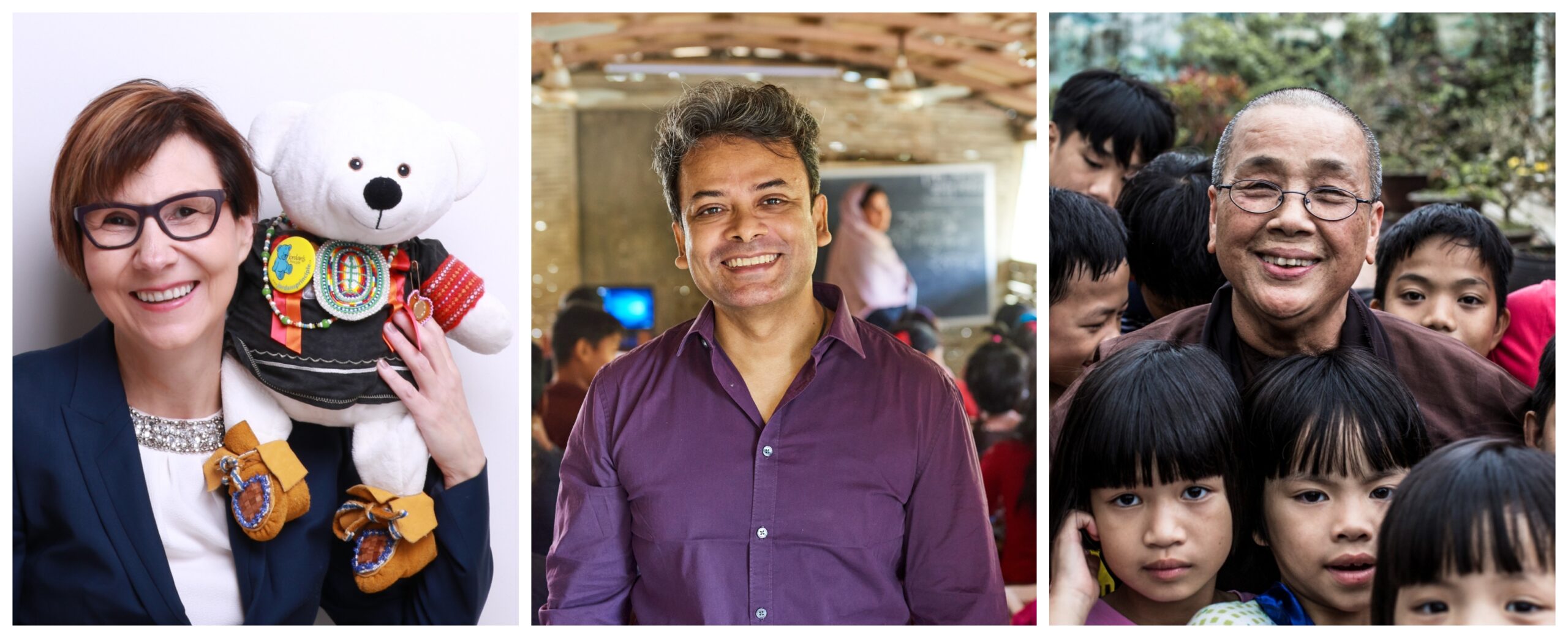
Cindy Blackstock has been named a finalist for the 2023 World’s Children’s Prize (WCP). A professor at the School of Social Work, Blackstock is being recognized for her decades-long work as an advocate for the rights and welfare of Indigenous children.
Blackstock is one of three children’s rights heroes in the running for the prestigious prize, often called the “children’s Nobel Prize.” Previous winners include Malala Yousafzai, Nelson Mandela, and Desmond Tutu.
In the WCP citation, Blackstock was praised for her “30-year fight for the rights of Indigenous children to get a good education, be healthy, grow up safely at home and be proud of their language and culture.”
Holding the federal government to account
A member of the Gitksan First Nation, Blackstock is the Executive Director of the First Nations Child and Family Caring Society. In November 2021, she was named Chancellor of the Northern Ontario School of Medicine (NOSM) University. Her academic research focuses on inequities in First Nations’ public and voluntary sector services and the over-representation of First Nations children in the welfare system. She has worked tirelessly to develop policy interventions to address these issues.
Blackstock played a pivotal role in the landmark $40 billion agreement reached on December 31, 2021, between the Canadian government and First Nations leaders, whereby First Nations children who were harmed by Canada’s discriminatory child welfare system may be compensated. The agreement marked the culmination of 15 years of public pressure and litigation.
She is also well-known for her leadership in bringing a human rights complaint against the federal government, resulting in a Canadian Human Rights Tribunal’s landmark ruling in 2016, in which the Tribunal found that the Government of Canada “was guilty of systemic discrimination by underfunding child welfare for First Nations children on reserve.”
“Extraordinary example of a publicly engaged social worker”
In December 2022, Blackstock was awarded the Social Sciences and Humanities Research Council’s Gold Medal, the federal agency’s highest honour. The Gold Medal is awarded to an individual whose sustained leadership, dedication, and originality of thought have inspired students and colleagues alike.
At the time, Nico Trocmé, Director of the School of Social Work and the Philip Fisher Chair in Social Work, said Blackstock was “an extraordinary example of a publicly engaged social work scholar who has brought together research evidence and steadfast public advocacy to successfully challenge discriminatory access to social services for First Nations children and families.”
In March 2022, Blackstock was named Canada’s Top 25 Women of Influence by the Women of Influence organization. The citation praised Blackstock for her “relentless pursuit of accountability and justice [that] has been instrumental in holding the Canadian government responsible and calling attention to the rights of Indigenous children across the nation.”
For her ability to leverage the law to promote social movements, Blackstock has been awarded Amnesty International’s Ambassador of Conscience Award, the Law Society of Upper Canada’s Human Rights Award, and an honouring by Jordan River Anderson’s community of Norway House Cree Nation. She was also named one of the Canada’s 50 most influential people by Maclean’s magazine.
Children have the final say
One of the unique elements of the World’s Children’s Prize is that winners are selected by children from around the world.
After learning about the work and impact of Blackstock and co-finalists Mohammed Rezwan of Bangladesh and Thích Nu Minh Tú of Vietnam, millions of children will take part in the global vote. As part of the process, children will organize election days in their schools, from setting up election booths and ballot boxes, to organizing election observers.
The majority of the children participating in the selection live in developing countries and are learning about democracy and individual rights.
The finalists will be honoured at the 20th World’s Children’s Prize Ceremony at Gripsholm Castle in Mariefred, Sweden. With the help of Queen Silvia of Sweden, children from twelve countries will host the ceremony and award the prizes.
